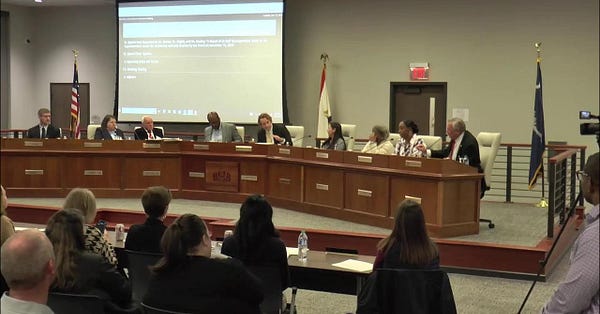“A true revolution of values will lay hand on the world order and say of war, ‘This way of settling differences is not just.’ This business of burning human beings with napalm, of filling our nation's homes with orphans and widows, of injecting poisonous drugs of hate into the veins of peoples normally humane, of sending men home from dark and bloody battlefields physically handicapped and psychologically deranged, cannot be reconciled with wisdom, justice, and love. A nation that continues year after year to spend more money on military defense than on programs of social uplift is approaching spiritual death.”
— Martin Luther King Jr., “Beyond Vietnam — A Time to Break Silence,” delivered April 4, 1967, at Riverside Church in New York City
“World military spending continued to grow in 2021, reaching an all-time high of $2.1 trillion. This was the seventh consecutive year that spending increased.”
— Stockholm International Peace Research Institute, April 25, 2022
***
When was the last time you heard someone talk about a peacetime budget?
President George H.W. Bush used to talk about a “peace dividend” from cutting the war budget after the Berlin Wall fell. The idea, never fully realized, was that all the money we’d budgeted for the Cold War could go toward civilian projects instead.
But then under the regime of Bush II we declared a worldwide war against the abstract concept of terror. The mission is never accomplished. We pulled out of the longest war in U.S. history last year, and this month Congress voted for our war budget to go … up.
Reuters reported Dec. 8 that the House version of the National Defense Authorization Act would pave the way for U.S. military spending to hit a new all-time record of $858 billion in 2023.
There are no longer any effective brakes on the war machine. Congress forfeited its constitutional authority over launching wars 7 days after Sept. 11, 2001, and never took it back. Today, under the ongoing provisions of the 2001 Authorization for Use of Military Force (AUMF), we in the general public aren’t even allowed to know the full list of places our troops get deployed, our bombs get lobbed, or our perceived enemies get tortured for shaky intelligence. We can know, thanks to the Brown University Costs of War Project, that our country’s post-9/11 wars have killed more than 929,000 people and displaced 38 million from Afghanistan, Pakistan, Iraq, Syria, Libya, Yemen, Somalia, and the Philippines.

Secondary to the human toll is the economic one, and the sheer waste of the U.S. military is legendary. The Department of Defense has never passed an audit; auditors this year found that the DoD couldn’t account for 61% of its $3.5 trillion in assets. Any school district that failed an audit that badly would have been shut down or placed under a consent decree by now, but Pentagon Comptroller Mike McCord went on the news and called it a “teachable moment” for his agency.
Gosh, hope they learn something this time!
There is the matter of what is unaccountable, and then there is the matter of what is inexcusable. How can it be, 77 years after the end of World War II, that the U.S. military still maintains 119 bases and 53,000 troops in the sovereign nation of Japan, over frequent protests from locals on the island of Okinawa who want us gone? Why do we have 28,5000 ground troops in South Korea, and how can we ignore the civilian protest marches in the streets of Seoul this year against U.S.-Korean war games?
At the current rate, you and I may live to see this country throw a trillion dollars a year into the war hole. There will always be more nukes to build, more laser-guided bombs to sell to Saudi war criminals to drop on Yemeni civilians, more fronts to an undeclared and indeterminate war that is never quite hot and never quite cold and certainly never won. This being the season of Peace on Earth, why not imagine a future in which we spend that treasure on literally anything else?
Book-banning news
My friend the poet Marjory Wentworth invited me to participate in a panel discussion this past Sunday about the campaign to ban books and censor teachers across South Carolina, and you can watch it here if you’re interested!
At least 100 people came out to an auditorium at the Technical College of the Lowcountry in Beaufort, S.C., for this panel hosted by the Pat Conroy Literary Center. I was joined by Marjory and another friend, the educator-scholar-activist AJ Davis, along with Josh Malkin of the ACLU-South Carolina.
I hadn’t met Josh in person before the panel, but I knew him through Freedom to Read SC, a statewide coalition he helped launch to push back against Moms for Liberty and the like. If you want to join the coalition and get occasional updates on local censorship battles across the state, click here to get involved.
Josh raised an interesting point about the semantic games played by book banners, who will invoke, for example, the concept of “parental rights” as a reason to fire teachers or take books about LGBTQ people out of libraries.
“We need to acknowledge the language, but we also need to get at the intent,” he said.
I’ve been thinking a lot about how best to get at intent, and how to throw a stick in the spokes of a juggernaut that runs on lies and distortions. When our highest education officials moan about “critical race theory” in schools and decry popular teacher labor movements as a vast leftist conspiracy, as South Carolina’s incoming education superintendent has done, which of those falsehoods do we really need to address? Is it worth arguing, or should we focus our efforts outside of the bogus framework they set for us?
Anyway, these were the thoughts swirling around in my head as I watched a school board meeting in Berkeley County, S.C., last night. I took notes in this twitter thread:


You may recall last month when a slate of candidates backed by Moms for Liberty and the local Republican Party fired the Berkeley County School District’s first Black superintendent, fired the district legal counsel, voted to cut property taxes, approved a ban on “critical race theory” in the classroom, and set up a panel to begin reviewing and banning books containing sexual content that they deemed inappropriate.
There weren’t a lot of policy changes at last night’s board meeting, but it was worth watching the public comments to hear a series of parents, teachers, retirees, and librarians heap scorn on the heads of the school board members. Berkeley County is hardly a hotbed of liberalism — the county went 55% for Trump in 2020 — but these people were fed up with the antics of the new far-right board majority. More to come on this situation soon (I’m working on a freelance piece about it), but suffice it to say that last night was energizing.
Santa’s mailbag
On a lighter note, as the weather turns crisp and holiday decorations go up, I’m reminded of the weirdest letter to Santa I’ve ever read, courtesy of little Robert Jackson in small-town South Carolina, 1922:
Ah, ‘tis the season. In case you missed it last year, here’s my very serious investigation of some Santa letters published in the Abbeville Press and Standard 100 years ago:
***
Looking for last-minute gift ideas? The Weirdly Specific Holiday Book Guide is here.
Brutal South is a free weekly newsletter about class struggle and education in the American South. If you would like to support my work and get access to the complete archive of subscriber-only content, paid subscriptions are $5 a month.
Twitter // Bandcamp // Spotify Podcasts // Apple Podcasts // Bookshop





